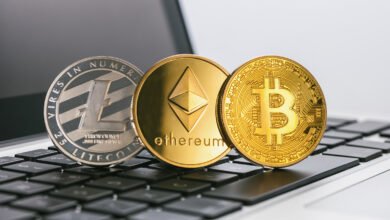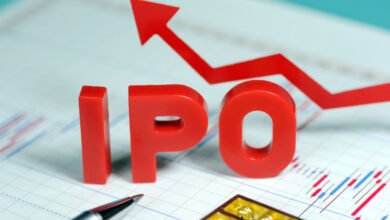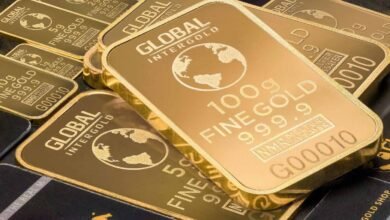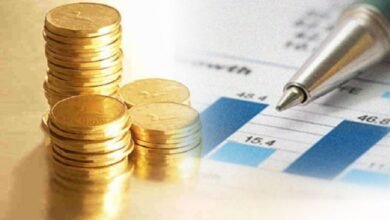Inflation: Causes, Types, and How to Hedge Against It
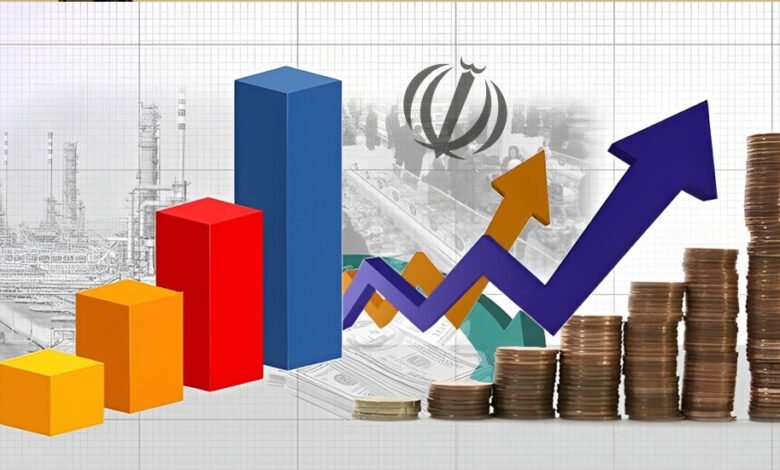
what is economic inflation ?is one of the biggest economic problems that a country can face. It means that the purchasing power of the currency in the country is decreasing, and that the amount of money you have today will buy you fewer goods and services than it did yesterday. In this article, we will learn about the definition of inflation, its causes, types, effects, and how to hedge against it.
what is economic inflation ?
Inflation is a state of rising prices for goods and services, accompanied by a decrease in purchasing power over a certain period of time. This means that the currency unit in a country can now buy less than it could in previous periods.
Causes of Economic Inflation
Inflation can occur in two ways: demand-pull inflation and cost-push inflation.
- Demand-pull inflation occurs when there is an increase in the demand for goods and services while the supply remains constant. This leads to a significant increase in prices.
- Cost-push inflation occurs when there are external events -such as natural disasters or pandemics- which limit the ability of companies to produce enough goods and services to meet demand. This leads to higher prices and inflation.
Types of Inflation
When control over inflation levels is lost, this leads to other, more severe types of inflation, such as hyperinflation and stagflation.
- Hyperinflation occurs when the value of a country’s currency plummets, accompanied by a rise in the prices of goods and services by at least 50% per month.
- Stagflation occurs when high inflation levels persist alongside a significant increase in unemployment rates and a sharp decline in the country’s economy.
How to Measure Financial Inflation
Inflation levels are measured using three main indicators:
- Consumer Price Index (CPI): Calculated monthly based on changes in the prices of goods and services that consumers primarily demand, such as food, building materials, communications services, and healthcare services.
- Producer Price Index (PPI): Calculated monthly based on changes in the prices of products sold by companies. Production costs can increase due to increased customs duties, increased oil prices, or increased prices of raw materials.
- Personal Consumption Expenditures Price Index (PCE): Calculated based on the amounts that consumers pay to obtain goods and services. It is worth noting that this indicator is very important because it is the measure that the Federal Reserve relies on when making its monetary decisions.
Read About: investment portfolios
Does Inflation Have Benefits?
In fact, an inflation rate of around 2% per year is a good rate, as some inflation is necessary to accelerate the pace of growth and encourage spending instead of saving. This in turn leads to stimulating the economy and its development.
It is worth noting that the Federal Reserve usually maintains inflation levels at around 2% using various financial instruments.
What are the Effects of Financial Inflation?
- Erosion of purchasing power: The high rise in prices over a short period of time leads to a decrease in the purchasing power of consumers.
- Decline in the standard of living for low-income people: Low-income consumers tend to pay a higher proportion of their salaries on basic necessities such as food and medicine, compared to high-income earners.
- Raising interest rates: Central banks resort to raising interest rates when inflation exceeds certain levels.
- Inflation lowers the cost of borrowing: The value of the original amount borrowed will decrease, and the value of interest payments on the debt will also decrease.
- Inflation reduces the ability to save: Income is barely enough to cover basic living expenses such as food and healthcare.
- Loss of some business owners: While essential product companies perform well during periods of inflation, luxury (entertainment) product companies suffer heavy losses.
How to Hedge Against Economic Inflation
There are several investment tools that can be used to hedge against inflation, the most important of which are:
- Buying stocks: As stock prices often rise to cover the effects of high inflation.
- Low-risk Treasury bonds and notes: These bonds are protected from inflation, as the returns on these bonds are often increased by a percentage of inflation.
- Investing in exchange-traded funds: Which have very low risks.
Read About: Shar’i Rulling of Stocks Trading
- Tangible Assets: Tangible assets are physical assets that have value in and of themselves. They can be used to hedge against inflation because they tend to hold their value over time. Some examples of tangible assets include: real estate, land, precious metals, commodities
Who Benefits from Economic Inflation?
High inflation levels often hurt most consumers, but can benefit some, such as:
- Borrowers: The value of their debts decreases and the interest payments on this debt decrease during periods of inflation.
- Owners of real estate, land and buildings: The value of their properties will increase significantly.
Who is Harmed by Economic Inflation?
High inflation has several negative aspects. The most important of which is harming savers and lenders. Savers suffer from a decrease in the purchasing power of their savings, and lenders suffer from a decrease in the value of the original loan amount, accompanied by a decrease in the value of interest.
While most consumers can be harmed by high inflation, as products become more expensive, low-income consumers will be disproportionately affected.
Is Inflation Always Bad?
No, because prices generally rise over time and the economy grows. Opening new businesses will lead to increased employment, which in turn means that more people will be able to buy goods and services. As a result, companies tend to raise the prices of their products because they know that people can afford to buy them. This is how companies grow more and more. Therefore, a small increase in inflation is a good thing that results from increased economic growth.
FAQ
Why is inflation so high right now?
Global inflation rates reached their highest levels in 2022, due to several factors, including:
- The spread of the COVID-19 pandemic, which led to major shutdowns, disruptions in global supply chains, and increased government spending on unemployment benefits.
- The Russian-Ukrainian war, which has led to a decline in the global supply of oil and gas, as well as higher prices for agricultural crops and food.
Is investing in gold good during periods of high inflation?
Yes, gold is considered the most important hedging tool during periods of high inflation, as rising gold prices often cover the rise in prices caused by inflation.
What is the economic inflation outlook for 2025?
Experts suggest that inflation has already peaked and is likely to start slowing down this year. However, inflation is still twice the rate targeted by the Federal Reserve, and it is worth noting that prices will remain above their real rates until at least 2025.
Resources:
- https://www.ecovis.com/global/what-is-inflation/
- https://www.forbes.com/advisor/investing/what-is-inflation/
- https://www.nerdwallet.com/article/investing/inflation
- https://www.businessinsider.com/personal-finance/what-is-inflation
- https://www.imf.org/en/Publications/fandd/issues/Series/Back-to-Basics/Inflation


